With less than a week now left to vote in the University of Lincoln Students’ Union (SU) Elections 2020, The Linc brings you a round-up of the manifestos published by all of the candidates.
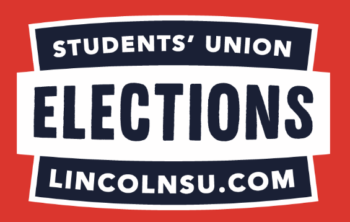
This year’s elections mark the first year where there will be no President of the SU elected.
At an All Student Members’ Meeting last October, it was agreed that this role would be scrapped and instead there will now be five Vice-President roles, as opposed to the current four.
Those roles are:
- Vice President Education
- Vice President International
- Vice President Activities
- Vice President Wellbeing and Community (new role)
- Vice President Campaigns and Environment (new role)
Here are the key points from the manifestos published by the candidates vying to be elected in all of the above roles.
Vice President Education
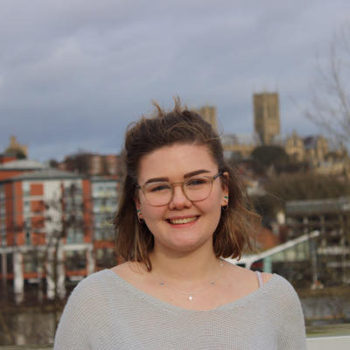
Georgia Petts
Georgia’s first manifesto pledge is to hold an “assessment feedback restructure.” Georgia says this would involve looking at how each school across the University of Lincoln structures its assessment feedback, and also creating a charter for students setting ground rules on what assessment feedback must include. The restructure would also involve lobbying all schools to release assessment calendars at the beginning of the academic year and publishing contact details for tutors when module leaders are out of office.
Georgia’s second manifesto pledge is to hold a review of the personal tutoring system across the University of Lincoln. The review would identify the strengths and weaknesses of the current system and then a subsequent report would be used to implement the necessary changes.
Finally, Georgia’s final manifesto pledge involves automatic enrolment for academic societies and tailoring a funding system for them with the university to allow these societies to develop by hosting guest speakers, social activities and academic study help.
James Morrison
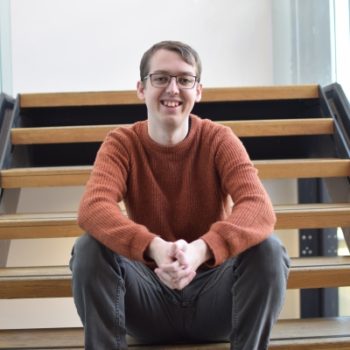
James’ first manifesto commitment involves working with the University of Lincoln to implement a permanent officer for students with learning disabilities.
A second manifesto commitment pledges to work with the VP Activities to ensure that every school within the university has its own “properly supported” academic society.
James’ third manifesto pledge promises to look at expanding the SU’s current work on mental health training by expanding that training to all course reps, and eventually even further.
Finally, James’ manifesto also pledges to “spearhead a campaign to eliminate as much paper from campus as possible.” Adding that: “Paper registers and assessment hand-ins should be a thing of the past, and far more emphasis should be placed on how we become a greener and more environmentally conscious campus.”
VP Activities
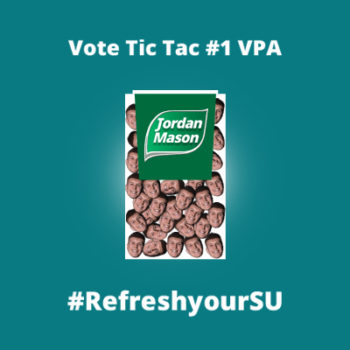
Jordan Mason
Jordan’s first manifesto pledge commits to fostering a better relationship between the SU and the University of Lincoln’s sports centre, citing “discrepancy between the SU and the sports centre when it comes to training space” as one of the current problems.
A second manifesto pledge involves improving the representation of societies which Jordan says are “still overlooked.”
Jordan’s third manifesto pledge involves better communication between all students, societies, sports teams and the SU.
Finally, Jordan also pledges to enhance the sense of “community” at the University of Lincoln by offering more opportunities to groups such as international and postgraduate students to get involved in activities.
Emily Dale

Emily’s first manifesto pledge commits to better communication by setting up “clearer venue booking systems” and making sure students have more of a say in SU activities including in how funds from the union’s recent departure from the NUS are allocated.
The second manifesto pledge involves ensuring adequate funding for all societies, saying that: “Paying more towards coaching fees and subsidising kit costs will reduce the stress on sports, while societies need their upkeep costs to be properly supported with rolling development grants.”
Finally, Emily’s third manifesto pledge involves making sure that every member of the university community is supported with their mental health. Pledges on this include making sure the committee are provided with comprehensive mental health training in all aspects of their role, and implementing more free activity sessions and campus-wide collaborations.
Abi Brown
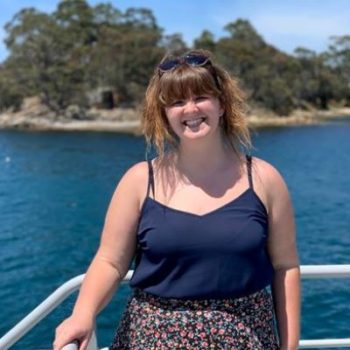
Abi’s manifesto commitments include purchasing electric minibuses to reduce carbon emissions which could be used for free by all student groups.
A second pledge involves providing mental well-being support to all committees through training, as well as establishing private rooms and counsellors in the union’s advice centre.
Providing separate funding pots for societies and academic societies is also promised.
Another pledge involves improving how societies are rewarded and recognised by the union through hubs, surveys and focus groups.
There is also a pledge to increase the hours at the sports centre and creating a long-term plan to establish a 4G pitch.
Finally, the manifesto also commits to going paperless in activities by ensuring that all forms are online “to support the climate emergency.”
Calvin Bissit

Calvin’s first manifesto pledge involves improving funding, communication and SU support for all societies, claiming: “Undoubtedly the SU has failed to support many of our Societies, Sports, Academic and General Interests alike, even if their needs weren’t huge to begin with.”
A second manifesto pledge involves reforming the room booking, event application and financial application systems. Pledges in this area include “a streamlining of the application system to make sure that the events applications show only the details needed, rather than leaving it over-complicated” and “making sure the societies are able to have easier access to their own funds.”
Finally, Calvin’s manifesto also pledges to create a student Events and Entertainment Committee to make sure that events are always run in accordance with the wishes of students. This part of the manifesto claims: “events such as Propaganda shouldn’t be torn away from students when the reality is it was having some of its ‘best nights’ without their consent. Further to this, spending SU money, students’ money, on a Barge that has been turned into a cocktail bar, which does not serve the interests of students, is unacceptable.”
Callum Darley Gibson

Callum’s first manifesto pledge commits to providing an SU minibus, adding that it’s “time to travel in style.”
A second pledge involves more rewards and recognition for societies. Pledges in this area include weekly competitions to increase engagement, use of screens at SU club nights to promote societies and sports and free printing for all societies and sports groups to advertise their events.
Callum’s third manifesto pledge involves supporting committee members within societies, including offering SU well-being support for those undertaking committee roles and allowing the VP Activities to connect with these committees at the very start of the academic year.
A fourth pledge commits to improving inclusivity and integration within the University of Lincoln’s community. Pledges in this area include the creation of an online progress system to make a bullet list of progress on projects, a culture fest to promote inclusivity within the SU, an international activities fayre and more engagement for sports groups in local leagues.
Finally, Callum’s manifesto promises “better finance, sponsorship and storage.” Pledges in this area include trying to ” ease the burden of fundraising by increasing funding grants across all sports and societies”, creating a “sponsorship directory that everyone can have access to” and increasing the number of storage facilities across the University of Lincoln campus.
Henry Badman

Henry’s first manifesto pledge involves looking at increasing support for those suffering with mental health within societies and sports groups.
A second manifesto pledge involves aiming to “redefine the university as a sporting university in the area.” Pledges in this area including making the sports centre a 24-hour gym, with a discounted membership for participants and representatives of university sports teams.
Finally, Henry’s manifesto also commits to helping to secure “the use of more all-weather pitches for outdoor teams, and indoor teams, so everyone has the ability to play consistently.”
VP Wellbeing and Community
Sophie Yeaman

Sophie’s first manifesto point looks at mental health. Pledges in this area include working with the Student Wellbeing Centre to improve the accessibility of their services for students, increasing the amount of professional care, introducing a new mental health drop-in with hot drinks and biscuits ran by students as an alternative to university services and also training individuals as “mental health champions”.
Sophie’s second manifesto point focuses on general health. Pledges in this area include improving the performance and quality of the University Health Service, ensure that the service is better equipped to deal with mental health and re-introducing sexual health services on campus including free condoms, STI screenings and contraceptives.
Finally, Sophie’s manifesto also pledges to improve the sense of community at the University of Lincoln. Pledges in this area include introducing a new tiered rewarding scheme for the volunteering programme, continuing to improve the standard of student housing in Lincoln and also improving Lincoln’s SU so that it’s recognised for its focus on “students well-being nationally.”
Lucy Elaine Krogdahl
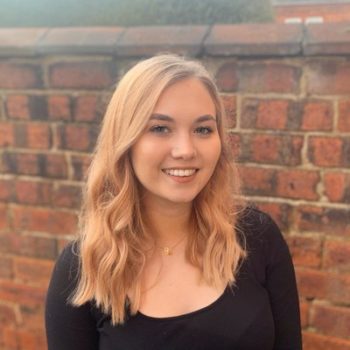
Lucy’s first manifesto pledge involves creating a 24/7 anonymous, student-run helpline for those struggling with their mental health.
Lucy’s second manifesto point looks at sexual health at the University of Lincoln. Pledges in this area include working with local clubs with the aim of bringing back free STI testing in student nights at local clubs.
A third manifesto pledge looks at increasing green areas for students to study in at the University of Lincoln, adding that the priority when working on this area would be: “the ambition of making Lincoln a more eco-friendly uni and therefore, there would be an emphasis on recycling points, increasing bottle filling stations and building habitats for small animals and insects.”
Finally, Lucy’s manifesto also commits to improving the standard of student housing by building a partnership between the SU and agencies in Lincoln offering student housing.
Kathryn Louise Wilson
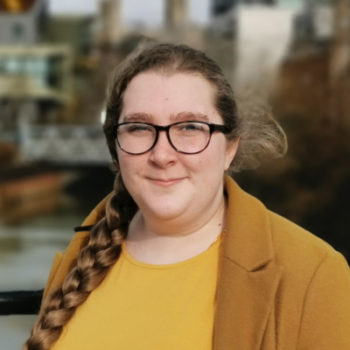
Kathryn’s first manifesto point looks at the idea for a “Let’s Talk About It” campaign. The manifesto says that this campaign would be aimed at “giving people a voice and reducing the stigma behind talking about what they may have been struggling with at university” in regards to disability, learning difficulties and mental illness.
A second manifesto pledge involves improving the safety of student housing. Pledges in this area include providing information to students constituting what is and isn’t acceptable in terms of the standards of their housing. The manifesto adds that this information would contain a “submission box where questions can be posed without the need to step into the advice centre or send an email.”
Finally, Kathryn’s manifesto also promises to help students in answering questions about life after university including on issues such as getting a mortgage, paying taxes and shopping sustainably.
Tilly-Willow Woodmin
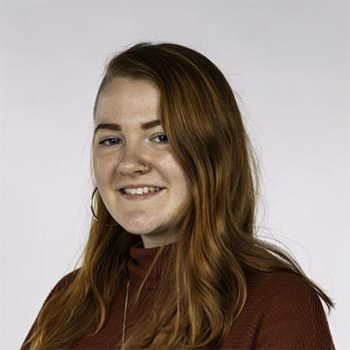
Tilly-Willow’s first manifesto pledge looks at physical, mental and sexual health. Pledges in this area include making sure all services in the above areas are well signposted and creating a “nightline” to give out of hours access to students who need to talk to someone.
A second manifesto pledge involves ensuring that students feel safe on a night out. Pledges in this area include setting up regular meetings with the City of Lincoln Council and Lincolnshire Police to establish how tackle issues faced on a night out “at the source as opposed to only taking action when something bad happens.”
Finally, Tilly-Willow’s manifesto also promises to create a space within the University of Lincoln for students to go to if they are feeling low. The manifesto adds that this space would be “situated somewhere in the centre of campus, accessible by all students” with activities including colouring and origami.
VP Campaigns and Environment
Bailey Christine Marchant
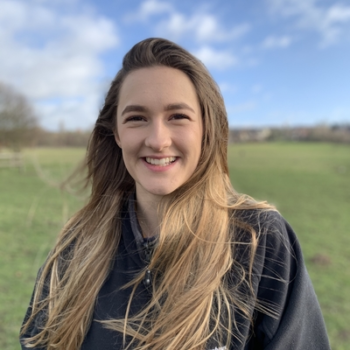
Bailey’s manifesto pledges include creating a plastic-free shop on campus, running trips to Riseholme College or the University of Lincoln’s sister campus to allow people to experience nature, running regular environmental hubs for environmental societies to work together.
On campaigns, Bailey’s manifesto pledges to introduce a new mental health officer role, aiming to get a ramp fitted at The Swan, and running a “clothes swap campaign for students to bring and take the same amount of garments for free to promote recycling and re-using.”
Callum Roper
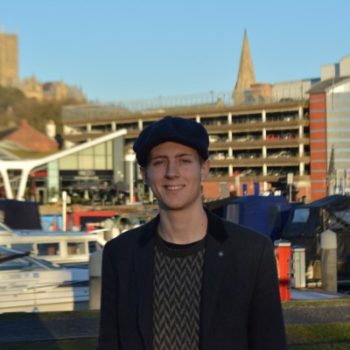
Callum’s manifesto pledges to introduce a green campus, an open campus and a students’ campus.
On a green campus, pledges include committing the University of Lincoln to achieve net zero carbon emissions by 2030, fighting for the end of all single-use plastics on campus, planting more trees on campus and extending cycling schemes.
On an open campus, pledges include launching a consultation on campus issues of accessibility and facilities, having events all year round celebrating diversity on campus and ensuring postgraduate students are properly represented.
Finally, on a students’ campus, pledges include transforming the SU into a “proper democratic body” as well as “implementing SUggestions reform that involves the proposer in implementation and allows student led campaigns to flourish.”
Implementing SUggestions reform that involves the proposer in implementation and allows student led campaigns to flourish.
Implementing SUggestions reform that involves the proposer in implementation and allows student led campaigns to flourish.
VP International
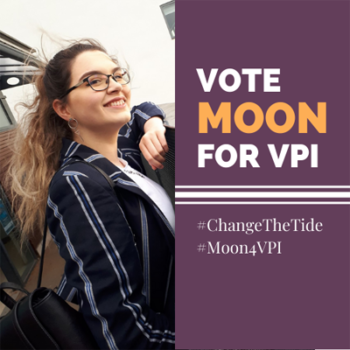
Jenna Emily Moon
Jenna’s manifesto reads: “It may seem confusing as to why a girl who was born and raised in England wants to represent the views, issues, and needs of all international and EU students. However, I am not unfamiliar with what it is like to be an international student. For two years, I attended an international school in the Netherlands. Despite the immense feeling of homesickness, I will value that experience forever as it introduced me to so many diverse cultures and helped me maintain an open mind. I am not suggesting my experience will be the same as everyone else’s but, it gives me the insight and understanding to be able to address and help with any issues international students may face.”
The manifesto adds: “I want to bridge the gap between international and home students, introducing more campaigns and activities that promote inclusivity and acceptance, providing students with opportunities to showcase their countries and cultures and providing students with a sense of security.”
Amina Ndekudugu Akugri

Amina’s manifesto reads: “Most times it’s hard to believe I am away from home because of the close bonds I have come to form with other students I met here. University of Lincoln has been a home away from home and I reckon it is all because of my inert ability to connect with people. This is what I want to explore and share as VP International. Being away from home for studies here, I have come to know that it does not have to be lonesome and difficult and if given the opportunity I would love to make the transition and stay for other international students as easy and seamless as possible.
University of Lincoln can be a home away from home for International students and I would love to make them experience that.”
Pledges in Amina’s manifesto include providing a smooth transition for international students starting at the University of Lincoln and ensuring there is adequate information available for them.
Nidhi Niting Pai Panandikar
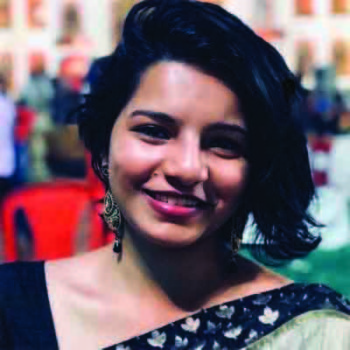
Nidhi’s manifesto reads: “I am an international student and know wholeheartedly what it feels like to be far from home. As your new VP International, I will make it my absolute responsibility to make sure you’re well looked after, in a comfortable environment.
“My guarantee to you is a wide array of representation for all nationalities on the SU platform. I promise to bring to light every festival of national importance to you and your country and to unify the ever-growing student’s community under the SU banner. I am running for VP International to stand with you as you as your support system, your guide, and your friend.”
There is now less than a week left to vote in the elections, which also involve voting for voluntary officers and school representatives.
You can read all of the manifestos in full and vote here.
The results night of the election will take place in the Tower Bar on Wednesday, February 26, from 7pm.

